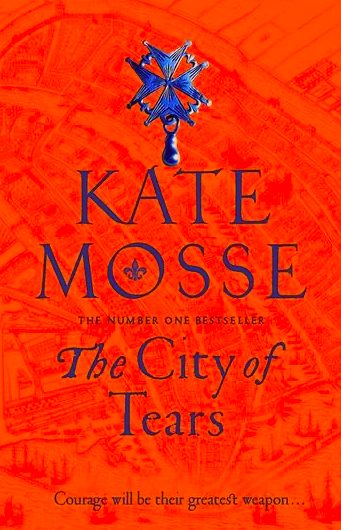To date, Kate Mosse has sold over five million books worldwide. Previous novels include Labyrinth (2005), Sepulchre (2007) and The Taxidermist’s Daughter (2014). The City of Tears is the second in a series that began in The Burning Chambers in 2018.
Both novels are set (mostly) in France in the mid to late sixteenth century. The City of Tears kicks off in 1572. A Royal wedding is happening in Paris that summer. Minou and Piet, somewhat against Minou’s better judgement, decide to travel to Paris from their hard-won rural idyll in the south of the country, to celebrate the union of the two warring churches, Catholic and Protestant, that could hail the unification of France. Grumbling aunt, precocious daughter and colicky baby son in tow, they set off in hope, little realising that every kilometre closer to Paris they trundle, takes them closer to a threat they’d long since thought buried.
This is a proper hold-your-breath thrilling rollercoaster of a read. Mosse has a talent for writing novels that suck you in and refuse to release you until you lollop to the finishing line. She’s obviously spent considerable time studying life in France – and then Amsterdam – in the sixteenth century. But she has that Hilary Mantel-style gift of making the reader feel that they’re doing anything but wolfing down a history lesson.
Her characters are as complex and as messily intertwined as any twentieth century hero and heroine that you might care to meet. At the outset of the novel, we meet a Minou who’s settled into a gentler pace of life at their beautiful chateau. Of course, her peace is shattered but she navigates the twists of fortune with tenacity and a steely grace.
As if addressing the oft neglected female perspective in much of documented history, Mosse writes a great female character. There’s not a fainting bodice-wearing fragile flower in sight. Instead, we have Minou’s quick silver curious daughter, her stoic sister and the coolly collected Cornelia from Amsterdam.
This is one of those novels that perhaps calls for a cast list at the beginning but the plethora of leading characters is managed with a deft hand and there’s something particularly pleasurable about losing yourself in sun dappled pine trees in the south of France, then the bustling hubbub of a commercial city set atop canals, when we’re all lurking about in our living rooms. But Mosse’s latest novel makes for an enjoyably engrossing indulgence, whatever the context.
